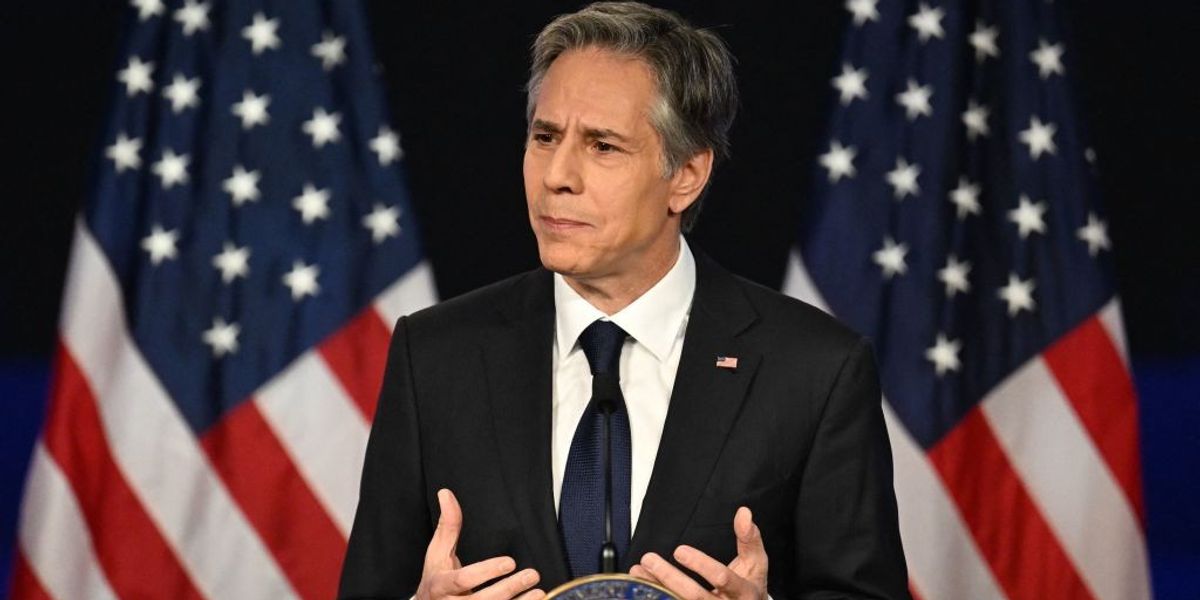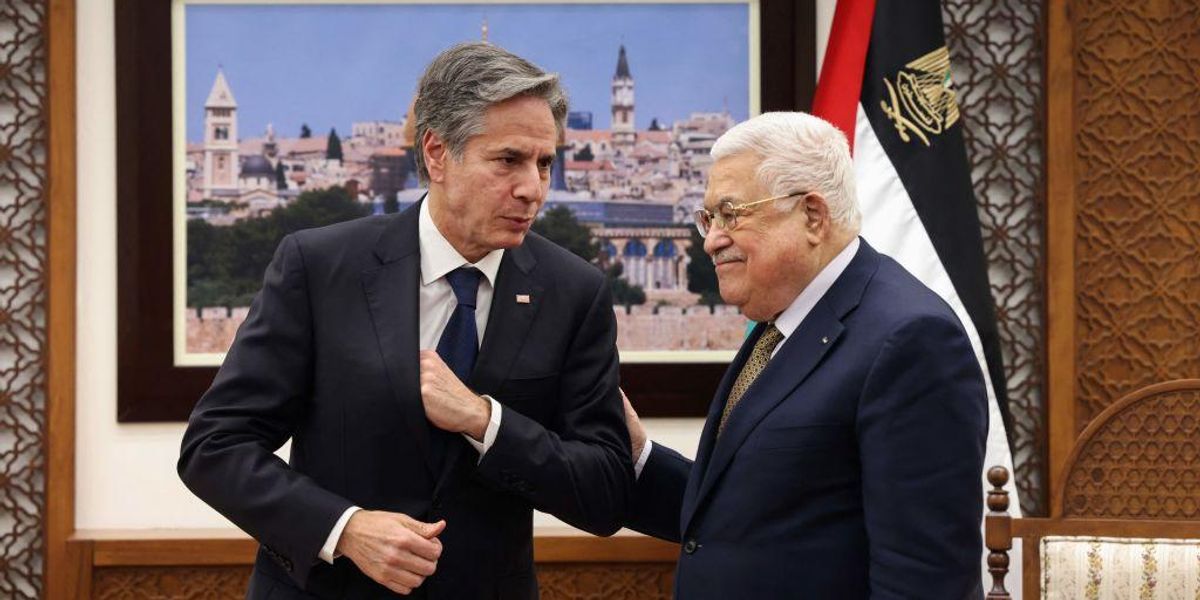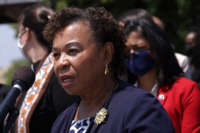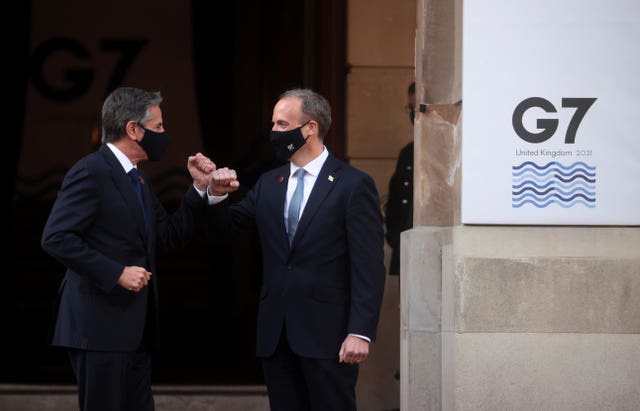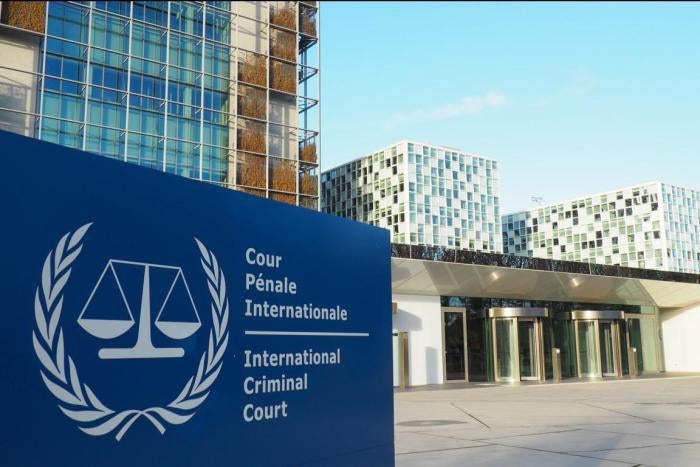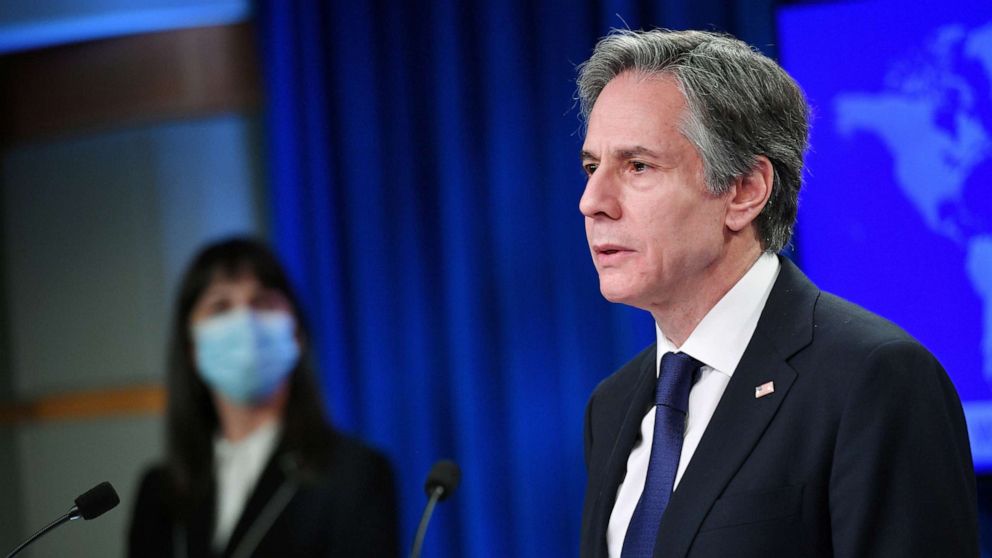
WASHINGTON, DC – MARCH 23: TikTok CEO Shou Zi Chew prepares to testify before the House Energy and Commerce Committee in the Rayburn House Office Building on Capitol Hill on March 23, 2023 in Washington, DC. The hearing was a rare opportunity for lawmakers to question the leader of the short-form social media video app about the company’s relationship with its Chinese owner, ByteDance, and how they handle users’ sensitive personal data. Some local, state and federal government agencies have been banning use of TikTok by employees, citing concerns about national security (Photo by Tasos Katopodis/Getty Images)
The US’ TikTok hearing is politically manipulated to cover its real purpose of robbing the profitable firm from China, which reflects the US’ mounting hegemony and bullying against firms with Chinese background, experts said on Friday, noting the US witch-hunting against TikTok portends US’ technological innovation is going downhill and the political farce against a tiny app has seriously shattered the US values of fair competition and its credibility.
The US House Energy and Commerce Committee held a hearing on Thursday (US time) titled, “TikTok: How Congress can safeguard American data privacy and protect children from online harms.”
While US lawmakers acted like they are pursuing a solution on how to ensure data security, the hearing turned out to be a political show that was designed to smear an international firm that has Chinese background and cover up its real purpose of stealing the firm from its Chinese parent, experts said.
Whether it ends up “killing” TikTok or forcibly taking the child out of its parent ByteDance’s arms, it is one of the ugliest scenes of the 21st century in high-tech competition, they said. “Your platform should be banned,” House Energy and Commerce Committee Chair Cathy McMorris Rodgers said as she started the hearing, claiming that the app has ties with Chinese government.
During the roughly five-hour hearing, CEO Shou Zi Chew’s attempts to illustrate TikTok’s business operations were frequently interrupted. His requests to elaborate on concerns of members of US Congress were also blocked.
Foreign Ministry spokesperson Mao Ning denounced the US’ move on Friday, saying the US is adopting the presumption of guilt and engaging in an unreasonable crackdown against TikTok without any proof.
“We noted that some US lawmaker has said that to seek a TikTok ban is a ‘xenophobic witch hunt’,” she said, urging the US to respect the market economy and fair competition rules, stop the unreasonable crackdown on foreign firms and provide an open, fair and non-discriminatory environment for other countries’ firms in the US.
The Chinese government places high importance on protecting data privacy and security according to laws. China has never and will never ask firms or individuals to violate local laws to collect or provide data and information stored within other countries’ borders, Mao stressed.
The latest hearing followed reports that the Biden administration has threatened to ban TikTok if its China-based parent company ByteDance doesn’t divest its stakes in the popular video app.
It is another dark scene in Washington’s struggle for US supremacy, the US’ barbaric act only underscores that US values of fair competition, freedom of speech and inclusiveness are gradually disappearing and instead xenophobia is rising, experts said, noting that the US government lacks confidence in competing with China.
Even more ironic is that rather than finding a solution to problems brought about by the negative impact of US social problems on children such as suicide, self-harm and drug abuse, US lawmakers are instead faulting the company, Li Yong, deputy chairman of the Expert Committee of the China Association of International Trade, told the Global Times on Friday.
“The hearing was hegemonic and bullying against a private firm,” Li said, noting that it’s common for American politicians to put unwarranted labels on entities with Chinese background by fabricating excuses.
“While the US has always paraded itself as a rules-based market economy, they don’t really have any objective rules. All the rules are selected and serve American political elites’ interests and US hegemony,” Li said.
The US’ forced sale of TikTok is shameless robbery of a profitable firm from China, he said, noting that the US is increasingly politicizing an innovative app that has enriched the digital life of American people and benefited a lot of micro businesses in the US.
“TikTok itself is not available in the Chinese mainland, we’re headquartered in Los Angeles and Singapore, and we have 7,000 employees in the US today,” Chew said in his opening remarks.
Dismissing Chew’s testimony, US officials have stepped up their fight against TikTok. Speaking at a separate House Foreign Affairs Committee hearing, US Secretary of State Antony Blinken said on Thursday TikTok should be “ended one way or another,” adding that he did not know if it would be sufficient for TikTok to be divested from its Chinese parent company, CNN reported.
The high-profile hearing also attracted wide attention from netizens who called US Congress members arrogant, ridiculous and ignorant.
“Not a single one of them has made an argument that makes a lick of sense,” an American net user posted on Twitter. “By his logic every other social media app should be banned,” posted another netizen.
The topic “TikTok CEO attending US hearing” became trending on China’s Twitter-like social media Sina Weibo, generating nearly 5 million views.
“I feel sorry for what Chew endured at the hearing. American politicians weren’t so arrogant and aggressive at Mark Zuckerberg’s Facebook hearing. It seems all the lawmakers are bullying Chew,” a Chinese netizen posted on Sina Weibo.
While Chew was grilled in Washington, Apple CEO Tim Cook was met with cheers and applause at an Apple store in Beijing on Friday, prompting Chinese netizens to compare the “so-called free market” in the US and “real free market” in China.
The Biden administration’s so-called “national security” narrative has also caused widespread speculation among TikTok users, scholars and researchers.
A TikTok sale would be “completely irrelevant to any of the alleged ‘national security’ threats” and go against “every free market principle and norm” of the state department’s internet freedom principles, the Guardian reported, citing Karim Farhat, a researcher with the Internet Governance Project at Georgia Tech.
NBC News reported on Thursday that a 19-year-old Harvard freshman named Aidan Kohn-Murphy, who used TikTok to rally support for Biden in 2020, is now trying to use the app to stop Biden from killing the platform.
“If they went ahead with banning TikTok, it would feel like a slap in the face to a lot of young Americans,” he said. “Democrats don’t understand the political consequences this would have.”
 Illustration: Liu Rui/GT
Illustration: Liu Rui/GT
Sinister move doomed
By forcing the sale of TikTok, the Biden administration is aiming to repeat its takeover of French power company Alstom and its torment on Japanese chip firm Toshiba, but the US’ sinister move is doomed to meet challenges, given similar roadblocks faced by Trump three years ago, experts said.
“The Biden administration will find it hard to completely ban TikTok, as the app has a large user base of more than 150 million in the US,” Xiang Ligang, director-general of the Beijing-based Information Consumption Alliance, told the Global Times.
It’s an even more complicated issue for the US to take over TikTok, as a possible deal should also be in compliance with Chinese laws, he said. Experts said the Chinese government may step in to block the sale of TikTok.
“The Chinese side is firmly opposed to the forced sale or divestiture of TikTok,” Chinese Commerce Ministry spokesperson Shu Jueting said on Thursday.
Exports of Chinese technology must be subject to administrative licensing procedures in accordance with Chinese laws, and the Chinese government is legally bound to make a decision, she reiterated.
In August 2020, China’s Ministry of Commerce revised its restrictions on technology exports, including personalized content recommendations based on data analysis and a number of other technologies such as AI algorithms, which is widely considered as China’s countermeasures against US’ forced sale of TikTok then.
Back in 2020, then president Donald Trump and his administration sought to remove TikTok from app stores and force ByteDance to sell off its US assets. US courts blocked the order, concluding that banning the app would likely restrict the “personal communications” and sharing of “informational materials” by TikTok users.
In addition, the Washington Post reportedly worked with a privacy researcher to look under the hood at TikTok in 2020, concluding that the app does not appear to collect any more data than typical mainstream social network platforms in the US.
“From the US’ groundless crackdown on Huawei to targeting TikTok citing the so-called ‘national security,’ American politicians have not had a comprehensive ‘blueprint’ for their moves, it’s all politically motivated,” Xiang said, referring to reports saying Biden is seeking a second presidential term.
On Thursday, the US put an additional 14 Chinese companies to a red flag list, forcing US exporters to conduct greater due diligence before shipping goods to them, mainly technology and solar firms.
Xiang said the US’ unabated crackdowns on international firms including those from China violate international rules, disrupt global industrial and supply chains and harm both sides’ interests and the global economy as a whole.
 Ghost of McCarthyism haunts TikTok Hearing. Cartoon: Carlos Latuff
Ghost of McCarthyism haunts TikTok Hearing. Cartoon: Carlos Latuff
This post was originally published on Dissident Voice.





